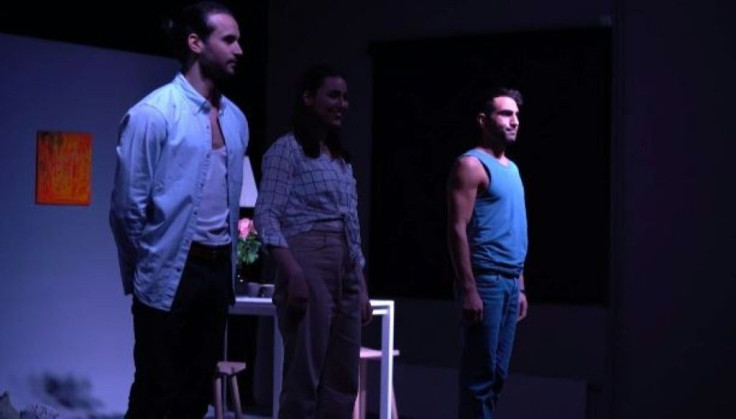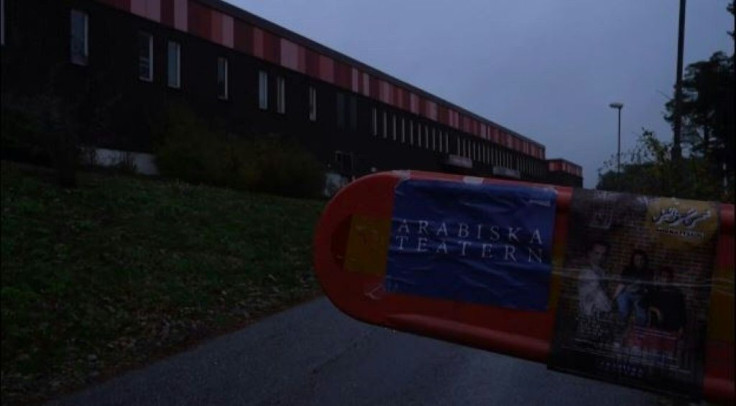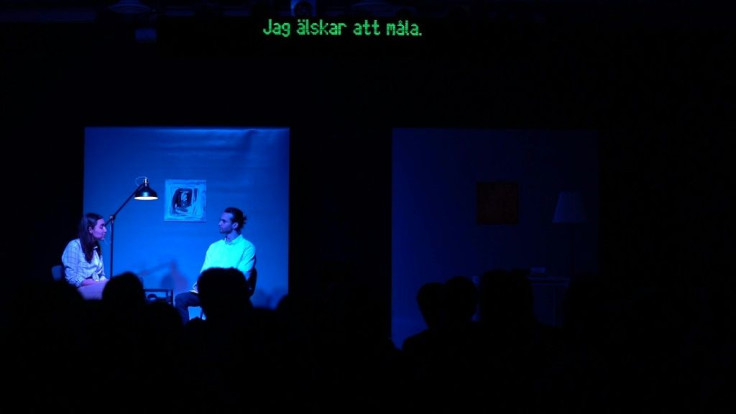Arabic Theatre Is Cultural Lifeline For Sweden's Migrants
In a theatre in Stockholm's suburbs, a small crowd gathered to watch three actors, two Syrian and one Swedish, act out the lives of a young migrant couple settling into life in Sweden.
But the language spoken by the troupe on the sparsely decorated stage in the small municipal theatre was Arabic, not Swedish.
This group has spent four years performing in the language, making it the first of its kind catering to Sweden's Arabic speakers.

Their Stockholm play was based on interviews with young migrants who arrived in Sweden from 2015, when more than one million people mostly from Syria, Iraq and Afghanistan made their way to Europe.
Sweden took in some 160,000 asylum seekers, the highest number per capita of any European Union nation.
After the performance -- one of the last before anti-coronavirus measures shut theatres -- Iraqi-Syrian actor Helen al-Janabi said the lack of opportunities for young Arabic speakers in Sweden to express themselves prompted her to launch the company with her Swedish husband in 2015.
"There's a serious lack of Arabic cultural activities," she said at the Stockholm office she shares with her husband, Oskar Rosen.

That gap was a particularly sore spot for Janabi, 40, who had worked in theatre in Damascus before arriving in Sweden and found next to no chance of using her skills in her new home.
With Rosen, 55, she tours small theatres with a rotating cast, often in areas with high populations of recently arrived migrants.
So far they have performed 400 times in front of an estimated 20,000 people in total.
While all performances are in Arabic, the group also aims to attract as wide an audience as possible, and an LED board over the stage always gives a translation of the dialogue into Swedish.

Most recently, they produced Midnight Sun, the story of a young couple -- an Iraqi man and a Syrian woman -- who arrived in Sweden in 2015, depicting their trials with integration, the asylum process and racism.
Syrian playwright Waseem al-Sharqi, who now lives in Berlin, wrote the script after reading through the transcripts.
He picked out recurring themes and experiences the migrants talked about, such as loneliness and the difficulties of integration.
"A large part of the audience tell us after the performance they either see themselves in the performing characters, or part of the processes they've been through," the 30-year-old said during a visit to the Swedish capital.
Farah Jarrar, a Syrian in her early thirties living in Stockholm who watched the performance, agreed.
"I've been in this country for more than two years, it's very hard transiting from one society to another," she said as actors and the audience mingled behind her.
"We aren't performing at all, and we don't know when we can perform again," Rosen said. "We have scaled down our work and are trying to survive."
In the meantime, Janabi and Rosen are recording productions and posting them online -- in hopes of getting back into theatres again in the future.
© Copyright AFP 2024. All rights reserved.



















